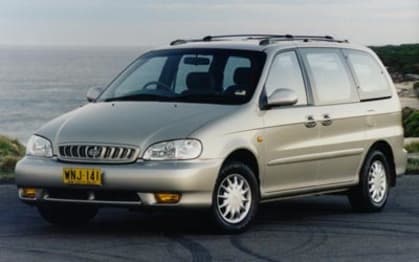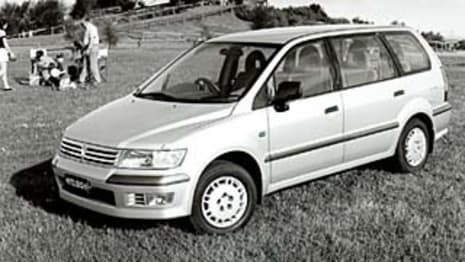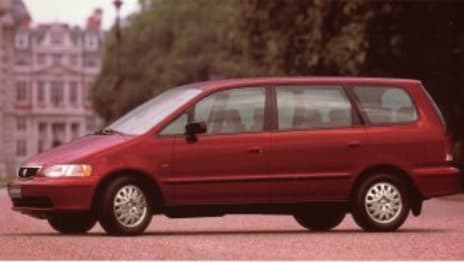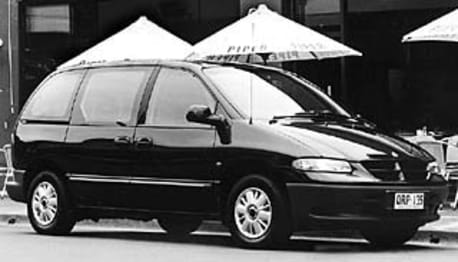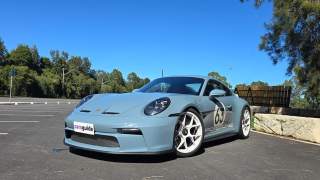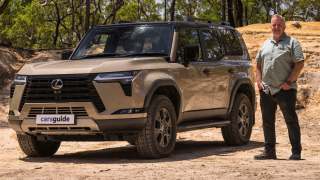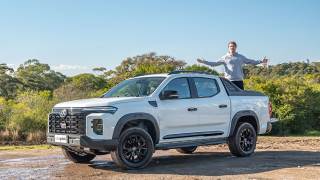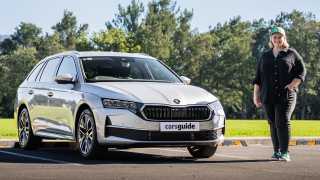
Used Kia Carnival review: 1999-2006
- Kia Carnival
- Kia Carnival 2004
- Kia Carnival 2005
- Kia Carnival 2006
- Kia Carnival 1999
- Kia Carnival 2000
- Kia Carnival 2001
- Kia Carnival 2002
- Kia Carnival 2003
- Kia Carnival Reviews
- Kia Reviews
- Kia People mover Range
- Kia Wagon Range
- People mover
- Wagon
- Kia
- Used Car Reviews
- 7 seater
- Family Cars
- Buying tips
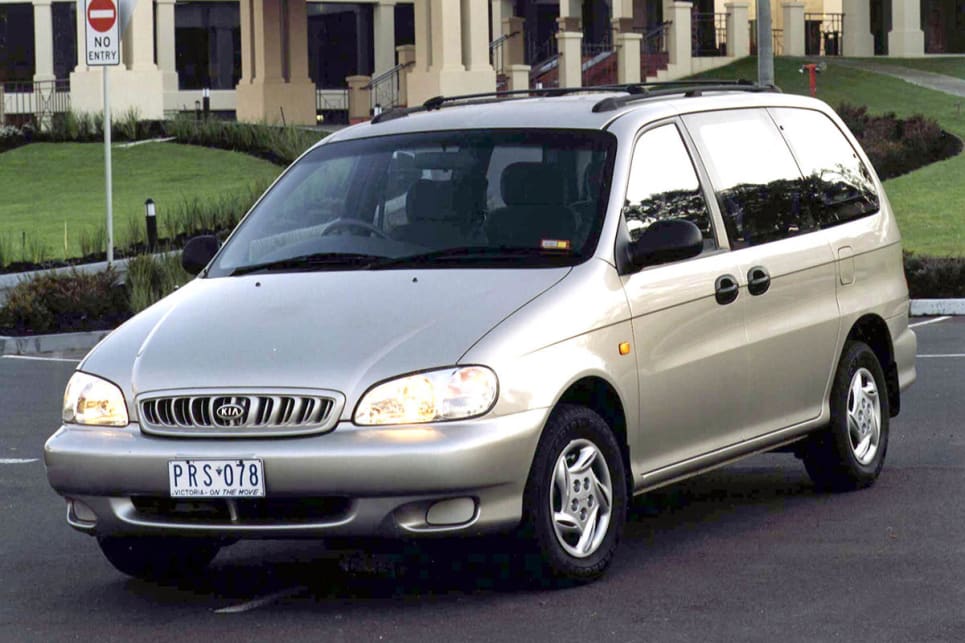
Kia Carnival is a Korean people mover that offers astonishing value for money. It first reached Australia in September 1999 and soon leapt to the head of the sales charts. A position it has been occupied for most of the intervening time.
The seven-seater Carnival consistently sells on the new-car market for about $10,000 to $20,000 less than people movers from Japan and the USA. Resale value is pretty reasonable, despite well documented problems with engines. More about that in a moment.
Kia's big Carnival offers good passenger legroom for seven adults, though four adults and three children is a more realistic load. It has a decent luggage compartment, though space becomes pretty limited if the vehicle is set up with child seats.
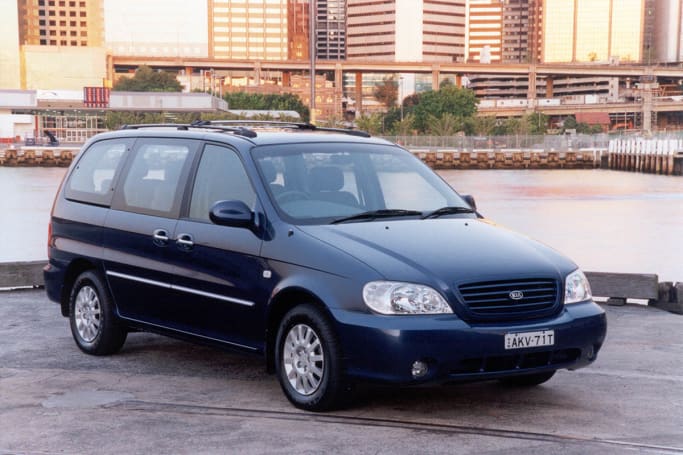
A major revamp of the Carnival late in 2001 saw the seating arrangement modified, and the rear hatch widened to give improved access to the luggage area. At the same time the frontal styling became more conventional and less ‘Korean’.
Carnival is obviously built down to a price, but the Koreans have a knack of getting a lot out of their vehicles for a modest design budget. Equipment levels certainly don't suffer because of the low cost of the vehicle. Even in the entry-level Carnival LS you get dual climate-control air conditioning, central locking, a halfway-decent stereo, power aerial, adjustable roof racks and front power windows.
Quality of finish is generally fine in the body, though interior appointments can let it down at times. The later the Carnival you buy the better finished it’s likely to be as these guys are quick learners. However, we still recommend a full inspection before you spend your hard-earned.
Carnival also has the advantage of being powered by a six-cylinder engine, albeit one of only 2.5-litre capacity. The engine is smooth and refined, more so than the four-cylinder units generally found in people movers in this price class, but doesn't have a huge amount of power.
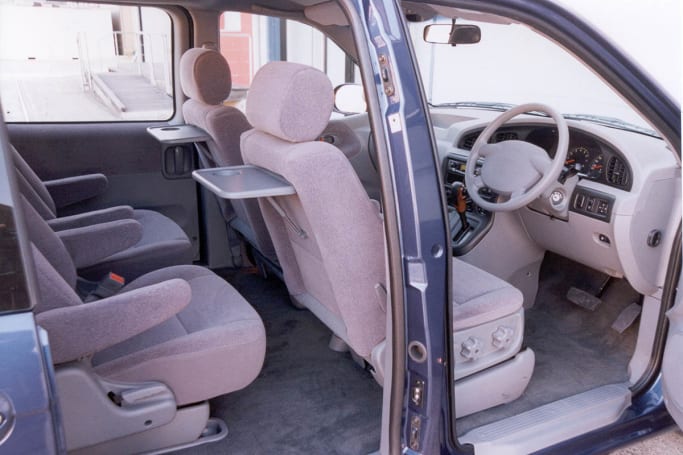
If you are going to be carrying a load of people and live in a hilly area it might be worth trying the performance of the engine for yourself. Just load up all those junior road testers, add a bit of luggage and go find yourself a steep climb.
Four-speed automatic transmissions are by far the most common, but there's also a five-speed manual on offer, the latter will let you squeeze a bit more out of the engine, but could be hard to resell a year or two down the track.
Interior noise levels in the Kia Carnival are moderate when cruising but the engine becomes fairly noisy if you work it hard.
Likewise, interior comfort can deteriorate if the road surface is bumpy and a fair bit of tyre noise gets into the cabin.
Handling is on the ordinary side. Obviously, you don't buy a people mover to scream around corners as though you were in a sportscar, but you do want a modicum of ability. Carnival likes to understeer if you go at anything more than a modest pace, can wander about a bit if the road surface is bad and/or there's a side wind. And to compound these problems, there's not a lot of feedback through the steering.
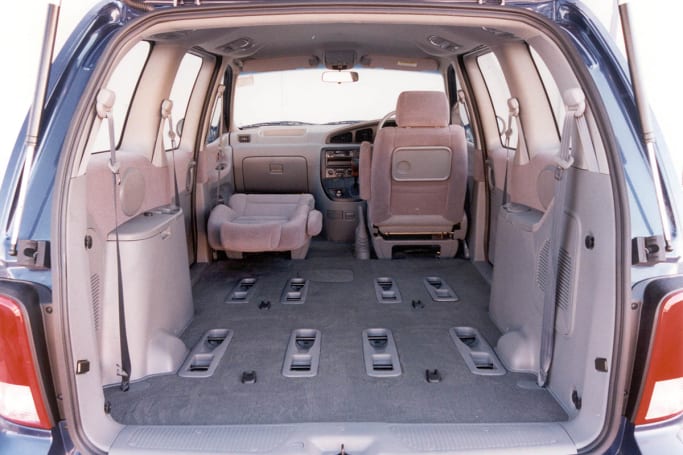
The turning circle is relatively large at almost 13 metres, not a problem for some owners, a real pain for others. Include a shopping centre car park as part of your road-test route.
Though a relative newcomer to the Australian market, Kia has become an established part of the scene, with a good number of dealers. We have heard of no real complaints about parts availability and spare parts prices are generally reasonable.
Carnival isn't too difficult to work on, with most of its major mechanical components being relatively easy to reach. As always, we recommend that only those who know what they are doing should work on the car, particularly in areas affecting safety.
Insurance is generally towards the bottom end of the scale, as befits a family carryall that's not going to be driven hard and fast. There seems to be a larger than average differential between in premium charges so you may find it worthwhile to shop around. When doing so it always makes a lot of sense to make sure you are doing an exact comparison in what's covered and what's not before making your final decision.
Kia's Carnival was joined by a new model called Grand Carnival late in 2006. At this stage the two are selling side by side on the new-car market, but it appears likely the old model will soon be superseded.
What to look for
Quite a few engines have suffered from cylinder head gasket failures. Look for emulsified oil in the cooling water and watch for a high temperature gauge on the coolant gauge. Surprisingly, the trouble is cropping up more in later models than older ones.
Kia repaired most defective engines under warranty, but it’s wise to check with the company before buying a used Carnival to make sure the one you’re looking at is covered.
Check the interior for signs of harsh treatment: sometimes caused by bored little darlings, at other times indicating the Carnival has been used as a taxi or shuttle bus, even as a courier vehicle.
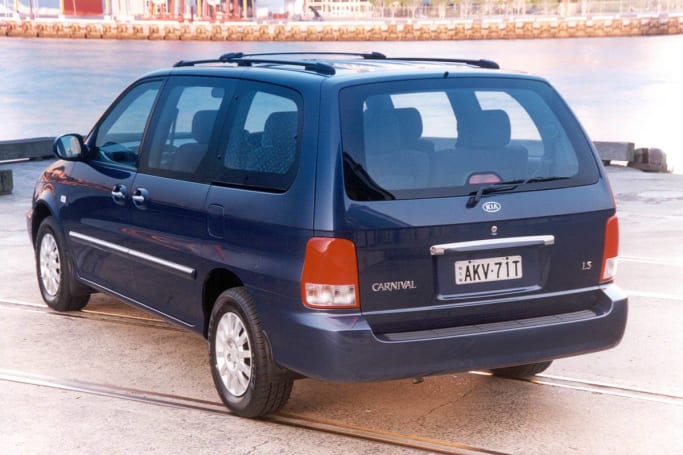
Look at the condition of the front wheels and tyres, damage is often an indication of their being thumped against kerbs by careless drivers.
An excess of brake dust on the inside of the wheels can indicate hard driving, something that’s unusual in a vehicle in this class, and often a good reason for passing one up in favour of the others.
Make sure the automatic transmission goes into Drive without too much delay and changes gears promptly and cleanly.
Watch for body damage and/or previous repairs. Mismatched paint and rippled panels are reasonably easy to spot. If possible do this inspection in strong light and view the panels along their length to get the best angle on any imperfections.
How much
Expect to pay from $8000 to $13,000 for a 1999 Carnival LS; $12,000 to $18,000 for a 2001 LS; $14,000 to $21,000 for a 2001 LE or a 2002 LS; $15,000 to $23,000 for a 2003 LS; and $19,000 to $27,000 for a 2006 LS.
Car buying tip
When checking any people mover make sure to spend plenty of time looking over all the seats, as well as their surrounding door pockets, also the carpet
Pricing
| Year | Price From | Price To |
|---|---|---|
| 2006 | $2,420 | $8,250 |
| 2005 | $2,200 | $4,180 |
| 2004 | $2,040 | $12,100 |
| 2003 | $1,820 | $4,620 |
| 2002 | $2,090 | $4,180 |
| 2001 | $2,040 | $4,180 |
| 2000 | $2,090 | $4,070 |
| 1999 | $2,640 | $4,070 |
Pricing guides
Range and Specs
| Vehicle | Specs | Price* | |
|---|---|---|---|
| LS | 2.5L, ULP, 5 SP MAN | $2,640 – 4,070 | 1999 Kia Carnival 1999 LS Pricing and Specs |
Other cars to consider
$2,090
Lowest price, based on third party pricing data



